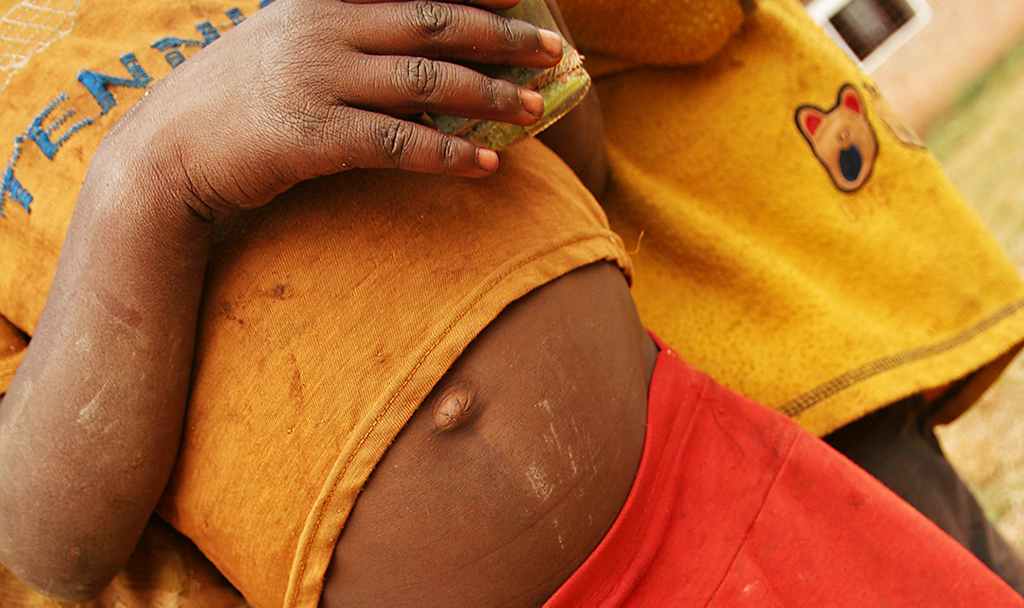AFRIM
Appropriate Fluid Resuscitation for Shock in Severely Malnourished Children

Objective
The main objective of the project is to evaluate the safety, efficacy and feasibility of both the MSF guidelines and early, goal-directed appropriate fluid resuscitation (AFR) in the early treatment of shock in severely malnourished children.
Description
Case fatality rates of children with severe malnutrition in resource limited settings are still unacceptably high. In a high proportion of these children mortality occurs within the first 24-48 hours after hospital admission. This early mortality is frequently associated with circulatory failure due to septic or hypovolaemic shock, suggesting that both early recognition and treatment of shock in these children can be improved. Tissue hypoxia is a key element of shock in the progression to multi-organ failure and death, which occurs in the critical ‘golden hours’. Therefore, most benefit of fluid resuscitation is to be expected when circulatory insufficiency is recognized and treated at an early stage. However, in severe malnourished children both recognition and treatment of circulatory insufficiency may be complex and has been the subject of continuous controversy.
In order to address the problems described above, three different studies will be undertaken. The first will be an observational study in 30 severely malnourished children in shock managed according to the MSF guidelines under strict hemodynamic monitoring. The second study will be similar to the first study only that the 30 severely malnourished children will receive AFR instead of the ‘MSF guidelines’. The results of these studies will allow us evaluate the safety of the MSF guidelines and the AFR regime, and may give us some indication of efficacy of both regimes. Finally, if indicated by findings from the initial studies, we plan to conduct a third study: a randomized controlled trial to compare the efficacy and feasibility of AFR vs MSF guidelines in preventing early death in severe malnourished children in shock.
Partners
Centre for Geographic Medicine Research (Coast) Kenya Medical Research Institute, Kilifi, Kenya
Department of Paediatrics, Faculty of Medicine, Imperial College, London, United Kingdom
Wellcome Trust Centre for Clinical Tropical Medicine, Imperial College, London, United Kingdom
Funders
Artsen zonder grenzen (MSF)
Countries
Kenya
